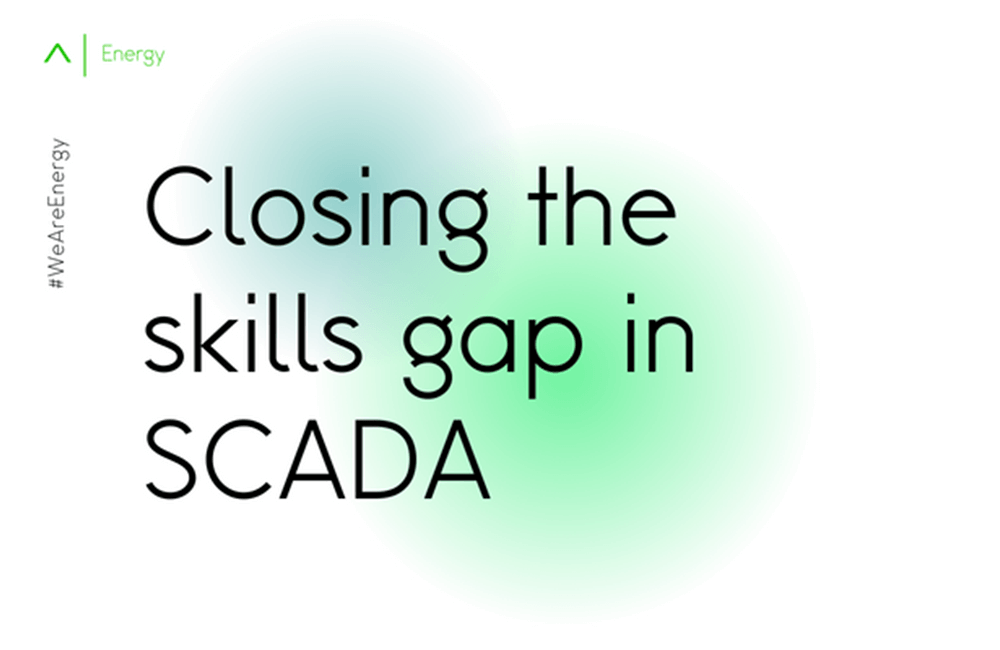Closing the skills gap in SCADA
12 May, 20222 minsThe climate crisis is driving aggressive expansion in renewable energy technologies–and that...

The climate crisis is driving aggressive expansion in renewable energy technologies–and that growth looks set to increase exponentially.
As more green technologies are deployed, economies of scale lead to lower costs, which in turn lead to more deployment. Onshore and offshore wind, solar power and battery storage are all gaining unprecedented momentum. The International Energy Agency reports that renewables saw a 45% jump in capacity in 2020.
But there’s one problem: 45% more capacity means 45% more workers needed. The sector is suffering from a growing labour shortage, particularly in the little-known but vital field of SCADA (supervisory control and data acquisition).
Both traditional and renewable energies use SCADA systems to keep sites running. SCADA links the hardware and software systems on a site to monitor and manage performance and safety, controls wind turbines and solar inverters, and keeps the power grid stable. Without enough SCADA skills to go around, the renewable industry won’t be able to stay competitive.
SCADA engineers need a vast array of skills: as well as proficiency in all the major SCADA applications, they need to understand both cutting-edge new technologies and outdated ones in order to integrate them successfully. Then they need IT and network skills, electrical and mechanical knowledge for power generation SCADA, knowledge of substation protection and control devices for integration SCADA, and of course knowledge of the specific renewable energy field they’ll be working in, such as wind or solar, and the regulations around it.
While companies and professional bodies do offer SCADA training, most of it is not in-depth enough to produce knowledgeable SCADA engineers; the only real option currently is to gain the necessary skills through on-the-job training.
Green energy companies typically look for SCADA engineers with a bachelor’s degree in a related field, like Electrical Engineering, IT or Computer Science, and at least four years’ relevant work experience, as well as top-notch computer and communication skills. In the absence of candidates who have the experience, companies hire people with one or two of the main skillsets and train them up on the job. It’s a slow process–and the demand is growing fast.
This has led many renewable companies to look to third parties to augment their workforce or move to third-party control rooms. There are several specialised organisations providing experienced SCADA engineers and control-room services to fill the gaps quickly, making outsourcing a practical and cost-effective option for companies of all sizes.


